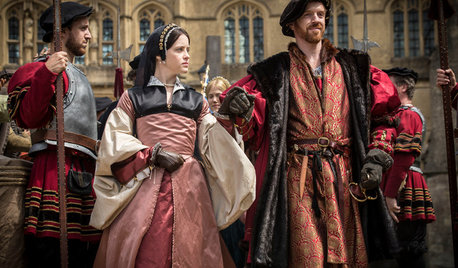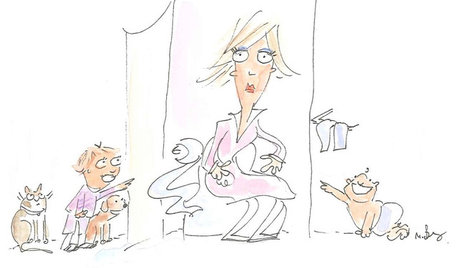Discussion - Wolf Hall - Hilary Mantel
martin_z
14 years ago
Related Stories

ARCHITECTURE‘Wolf Hall’ Style: The Secrets of Tudor Architecture
As American audiences watch a new TV series about the politics of Henry VIII, we explore the elements of his era’s distinctive style
Full Story
DECORATING GUIDES10 Ways to Update a Victorian Living Room
Bring your period living room sensitively into the 21st century with these simple yet effective design tricks
Full Story
HOUZZ TOURSHouzz Tour: Better Flow for a Los Angeles Bungalow
Goodbye, confusing layout and cramped kitchen. Hello, new entryway and expansive cooking space
Full Story
DECORATING GUIDES25 Design Trends Coming to Homes Near You in 2016
From black stainless steel appliances to outdoor fabrics used indoors, these design ideas will be gaining steam in the new year
Full Story
BEFORE AND AFTERSInside Houzz: Ideabooks Propel a Major Chicago Remodel
Communicating redesign wishes was easy for a homeowner with Houzz’s tools at her fingertips
Full Story
LIFEHouzz Call: Where (and What) Are You Reading This Summer?
Whether you favor contemporary, classic or beach reads, do the long and lazy days of summer bring out the lit lover in you?
Full Story
LIFE21 Things Only People Living With Kids Will Understand
Strange smells, crowded beds, ruined furniture — here’s what cohabiting with little monsters really feels like
Full Story
HOMES AROUND THE WORLDWorld of Design: 11 Book Lovers and Where They Like to Read
Bibliophiles across the globe reveal their top books and favorite reading spots, from a 2-story library to an artfully curated book nook
Full Story
FUN HOUZZHow to Survive an Epidemic of Walking Dead
Tips to use around the house and garden to prep for the zombie apocalypse
Full Story
ROOTS OF STYLEArt Deco, Art Nouveau, Arts and Crafts: What’s the Difference?
If the zigzag and swirly designs of the past leave your head spinning, these descriptions will straighten you right out
Full Story



lydia_katznflowers
Kath
Related Discussions
Idea for a Long Winter's Read
Q
Possible discussion of Wolf Hall?
Q
Wolf Books ... title must have 15 characters?
Q
Hold All My Calls! Hilary Mantel's Cromwell Book Is Due Out
Q
veer
martin_zOriginal Author
friedag
veer
friedag
Kath
lydia_katznflowers
friedag
veer
friedag
veer
junek-2009
lydia_katznflowers
friedag
junek-2009
veer
friedag
veer
lydia_katznflowers
leel
junek-2009
friedag
martin_zOriginal Author
frances_md
martin_zOriginal Author
Kath
friedag
veer
friedag
veer
junek-2009
friedag
lydia_katznflowers
veer
friedag
lydia_katznflowers
veer
friedag
veer
martin_zOriginal Author
carolyn_ky
captainbackfire
preb
rosefolly
veer
veer
J C
woodnymph2_gw